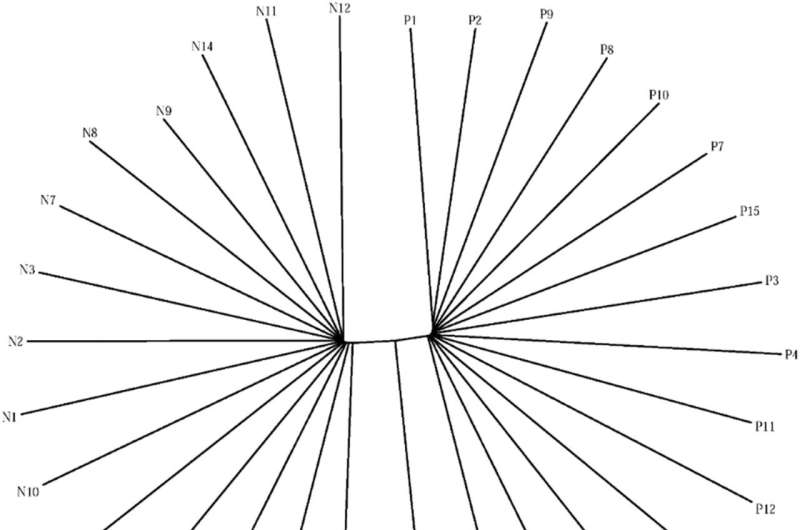This article has been reviewed according to Science X's editorial process and policies. Editors have highlighted the following attributes while ensuring the content's credibility:
fact-checked
trusted source
proofread
Gene group influencing pain and brain communication can also influence alcohol use disorder risk

An estimated 16 million people in the United States have alcohol use disorders (AUDs), according to the National Institutes on Alcohol Abuse and Alcoholism (NIAAA). Now, Indiana University researchers have made a substantial discovery about the role genes play in the development of AUDs, finding that alteration of a group of genes known to influence neuronal plasticity and pain perceptions, rather than single gene defect, is linked to AUDs.
"We know inherited genes are a major contributor to this disease, because past studies have shown family genetics to be directly associated with alcohol dependence within a family, such as identical twins raised in different environments," said Feng Zhou, Ph.D., professor emeritus of anatomy, cell biology and physiology at IU School of Medicine.
Zhou is the lead author, along with William Muir, Ph.D., professor emeritus of genetics at the Purdue Department of Animal Sciences, of a new publication in Alcohol: Clinical and Experimental Research, which details their new findings.
Researchers used three different animal models created in the IU Alcohol Research Center to study how the genes impact desire for alcohol. The study involved statistically sorting through about 3 billion DNA base pairs containing nearly 30,000 genes in 70 individual animals to identify the handful that were responsible for drinking behaviors. Thanks to their experimental design, the researchers were able to identify population differences based on drinking behaviors rather than chance genetic differences or other environmental influences.
"These rat models are all uniquely qualified as criteria for human outcomes," said Zhou.
The genes that mediate pain sensation act in concert with two other groups of neural channel and neural excitation genes that perform neural communication functions, the team found.
"The function of these three groups of genes is important for neuroadaptation and neuroplasticity, meaning that they can change brain communications," Zhou said.
They also discovered a key cohort of genes impacted alcohol use, with some of the genes having silent mutations, meaning they did not alter the amino acid sequence translated, but influenced the rate and conformation of gene transcription, causing changes in the other genes that had an impact on alcoholism.
"This is the first time these multiple models have ever been used for this pursuit," Muir said. "In the past, research has focused on a single gene and how it can contribute to alcohol use, but now, we can see that these large groups of genes make a difference, which can help guide future research and clinical care for those suffering from AUDs."
"The brain must be modified over the drinking period. That kind of modification is similar to drug abuse," Zhou said. "It is genetically prone neural plasticity or neural adaptation to a certain level that makes drinking more pleasurable and more tolerable, or pain relief."
"The alleviation of pain appears to be one motivation to drink and continue to drink," Muir said. "Knowing that, it's possible that early counseling can produce drinking avoidance."
The new findings raise the possibility of genetic testing for alcoholism. People who get tested and know that they have a high genetic tendency to become an alcoholic might take extra care to moderate their drinking.
"One future direction is how these animal findings would translate to humans," Zhou said. "If verified, then treatment or prevention can be more focused."
Other study authors include Chiao-Ling Lo, Ph.D. and Richard Bell, Ph.D. of IU School of Medicine and the Indiana Alcohol Research Center at IU School of Medicine.
More information: William M. Muir et al, Multi‐animal‐model study reveals mutations in neural plasticity and nociception genes linked to excessive alcohol drinking, Alcohol: Clinical and Experimental Research (2023). DOI: 10.1111/acer.15131


















